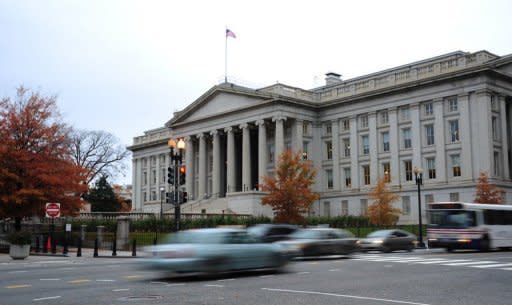US consumer confidence falls sharply in December

US consumer confidence fell sharply in December to its lowest level since August amid uncertainty about the "fiscal cliff" crisis, the Conference Board said Thursday.
The closely-watched monthly survey said the consumer confidence index dipped to 65.1, a drop from a downwardly revised 71.5 in November. Analysts had expected the December figure to be 70.0.
December's figure is the lowest since August, when it stood at a revised 61.3.
Lynn Franco, the Conference Board's director of economic indicators, said consumers' expectations had retreated sharply in December, resulting in a decline in the overall index.
"The sudden turnaround in expectations was most likely caused by uncertainty surrounding the fiscal cliff," Franco said in a statement.
With an end-of-year deadline just days away, politicians in Washington have yet to strike a deal to keep stiff tax hikes and drastic budget cuts from taking effect next month.
Experts say going over the "cliff" could take the world's biggest economy back into recession.
Franco added that a similar decline in expectations was experienced in August 2011 during debt ceiling discussions in Washington.
"While consumers are quite negative about the short-term outlook, they are more upbeat than last month about business and labor market conditions," Franco said.
Consumers who assessed business conditions as "good" rose to 17.1 percent from 14.6 percent, while those viewing them as "bad" slipped from 31.2 percent to 27.3 percent.
However, the percentage of consumers expecting business conditions to improve over the next six months dipped from 21.3 percent to 17.6 percent. Those expecting conditions to worsen climbed from 15.8 percent to 21.5 percent.
"This is a bad report, since December is an important month for retailers," wrote Chris Christopher, senior principal economist at IHS Global Insight.
"To sum up -- the fiscal cliff is the Grinch that stole consumer cheer this year. Bad timing indeed."

 Yahoo Finance
Yahoo Finance 